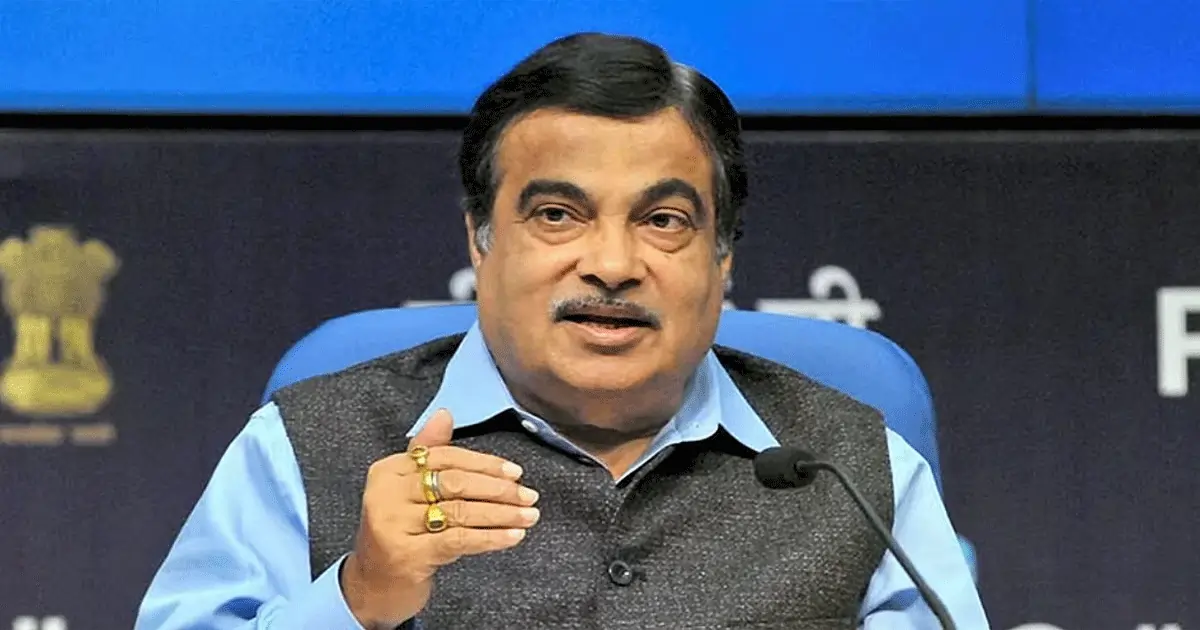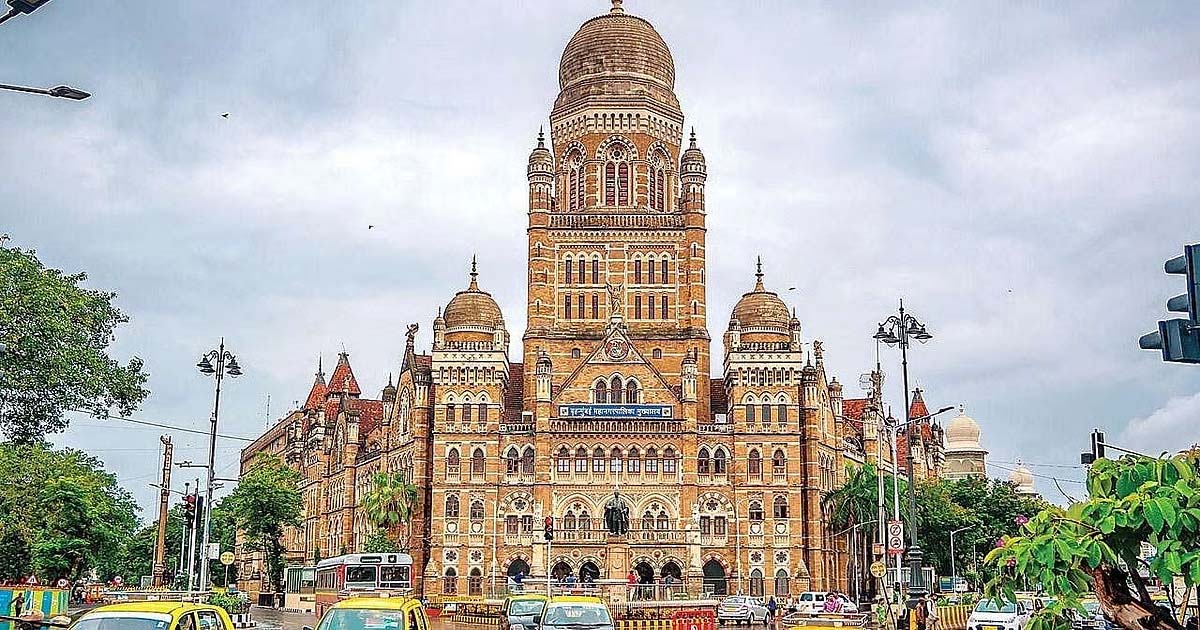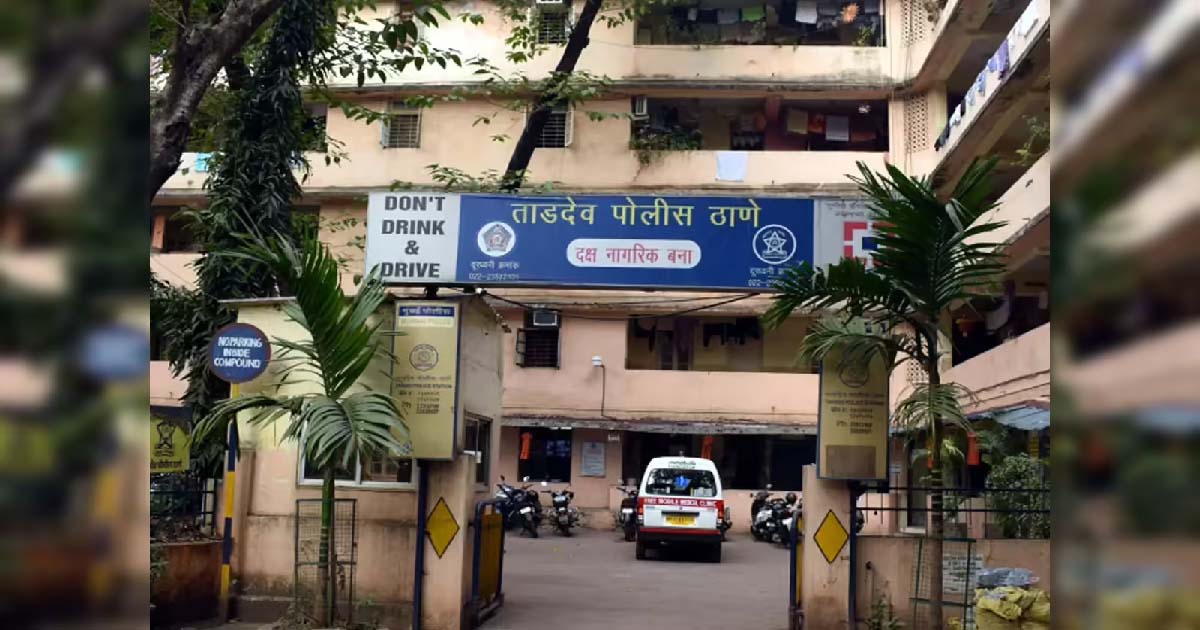Maharashtra
Govt Formulating Uniform Toll Policy To Ease National Highway Commuters’ Burden: Union Minister Nitin Gadkari

New Delhi, Feb 3: The road transport ministry is working on a uniform toll policy to benefit national highway users, Union Minister Nitin Gadkari said on Monday.
Gadkari also asserted that now India’s highway infrastructure matches that of the US. “We are working on a uniform toll policy. It will address the problem faced by the commuters,” he told media in an interview, without elaborating further.
Gadkari was responding to a question on simmering discontent among users of National Highways on account of high toll charges and sub-par road-user experience.
The longest-serving road transport and highways minister said that the ministry has decided to initially implement a barrier-less global navigation satellite system (GNSS)-based toll collection system on national highways.
The Ministry of Road Transport and Highways, Gadkari said, has been taking the complaints made by commuters on social media very seriously and is taking strong action against contractors involved.
At present, while private cars constitute about 60 per cent of the traffic on national highways, the share of toll revenue from these vehicles is barely 20-26 per cent.
Toll charges have increased on highways even as more and more stretches have come under the tolling system over the past 10 years, often leading to rising user discontent.
Total toll collection in India touched Rs 64,809.86 crore in 2023-24, a 35 per cent rise over the previous year. The collection was Rs 27,503 crore in 2019-20.
All user fee plazas on National Highways are established as per the provision of National Highways Fee (Determination of Rates and Collection) Rules, 2008 and the respective Concession Agreement.
Gadkari expressed confidence that in the current financial year, the highways ministry will surpass the previous record of 37 km per day highways construction in 2020-21 financial year.
Around 7,000 km highways been constructed so far in the current financial year. Traditionally, the pace of highways construction is higher in the February-March period.
The pace of highways construction in the country has touched a record 37 km per day in financial year 2020-21. The highways ministry had constructed 13,435.4 kilometres in 2020-21; 10,457.2 km in 2021-22; 10,331 km in 2022-23, and 12,349 km in 2023-24.
Gadkari also said this financial year, the ministry will award highways projects of 13,000 km. The ministry had awarded highways project of 8,580.5 km in 2023-24. The pace of highway project awards has slowed down considerably in the absence of a new scheme to replace the Bharatmala Pariyojana.
According to Gadkari, under the Bharatmala Pariyojana, the ministry had the power to award highway projects of up to Rs 3,000 crore, now the ministry cannot approve any fresh projects under the Bharatmala Pariyojana.
“For any project worth above Rs 1,000 crore, now we need to take the approval of the Cabinet. So, we have sent projects worth Rs 50,000-Rs 60,000 crore to the Cabinet for approval,” he said. “Once we get clearance, we will start working on those projects,” the minister added.
With an aim to reduce delay cost overrun and disputes, an inter-ministerial panel that appraises major highway projects has told the ministry to accept bids only after acquiring 90 per cent of the land required for the projects and getting all statutory projects such as forest and environment.
“This condition has affected the pace of award of highway projects,” Gadkari said. The government approved Bharatmala Pariyojana in 2017, covering a length of 34,800 km to improve connectivity and reduce logistic costs in the country.
As of October 31, 2024, projects covering a total length of 26,425 km have been awarded and 18,714 km has been constructed. India has the second largest road network and its National Highways span a total length of 1,46,195 km, forming the primary arterial network of the country.
Maharashtra
Mumbai Municipal Corporation general elections: Attendance at election training mandatory for officers and employees, criminal action will be taken against absenteeism

Mumbai: Municipal Corporation All officers and employees involved in the election process will be provided with necessary training to conduct the general elections in a transparent, fair and smooth manner. Training sessions have been organized from Monday 29th December 2025 to Monday 5th January 2026. The date, time and venue of the training have been intimated separately to all the concerned officers and employees. It is mandatory for the officers and employees to attend this training. The Municipal Corporation Administration has issued a strict warning that as per the instructions of the Hon’ble State Election Commission Maharashtra, criminal action will be taken against the officers and employees who are absent from the training or do not follow the orders. The State Election Commission, Maharashtra has announced the election schedule for the Municipal Corporation General Elections 2025-26. The voting process for the Municipal Corporation General Elections will be on Thursday 15th January 2026 from 7.30 am to 5.30 pm. Also, the counting process and results will be declared on Friday 16th January 2026 from 10 am.
All the stages related to the election process have been strictly planned to conduct the Municipal Corporation General Elections in a completely transparent, fair and smooth manner. Since it is necessary to provide necessary training to the Polling Station President (PRO), Assistant Polling Station President (APRO), Polling Officer (PO) and the employees involved in this election process, special training sessions have been organized by the Municipal Administration. This training session has been organized from Monday, December 29, 2025 to Monday, January 5, 2026. Training will be implemented in various stages during this period. The training will provide detailed guidance on the responsibilities of the election process, code of conduct, voting and counting process, legal matters and steps to be taken in emergency situations. The main objective of the election training is to make the election process credible and transparent by avoiding any kind of error, ambiguity or malpractice.
The date, time and venue of the training have been communicated to all the concerned officers and employees through separate appointment orders. It is mandatory for all officers and employees to attend this training. Absence will not be accepted for any reason. As per the directions of the State Election Commission, the Municipal Corporation Administration is giving a strict warning that officers and employees who are absent from the training session, do not comply with the orders or fail to perform their duties in the election process, will be subject to disciplinary action including criminal proceedings under Section 28 (a) of the Mumbai Municipal Corporation Act, 1888. Please take this matter very seriously and attend the training and discharge your duties honestly.
Crime
मुंबई के पायधोनी में करोड़ों रुपये के ड्रग्स के साथ 9 आरोपी गिरफ्तार, इनमें 3 महिला तस्कर भी शामिल

मुंबई : ड्रग्स के खिलाफ एक बड़े ऑपरेशन में, पायधोनी पुलिस ने 1 करोड़ रुपये से ज़्यादा की हेरोइन ज़ब्त करने और दो पुरुष और दो महिला ड्रग पेडलर को गिरफ्तार करने का दावा किया है। जानकारी के मुताबिक, 16 दिसंबर को दोपहर 2:30 बजे पायधोनी पुलिस स्टेशन की सीमा में पी.डी.मेलो रोड पर एक सर्च के दौरान, 37 साल के राम नटवर ठक्कर और 27 साल के वसीम सैयद के पास से 326 ग्राम से ज़्यादा हेरोइन बरामद की गई। आरोपियों को गिरफ्तार कर लिया गया और उन पर एनडीपीएस एक्ट के तहत मामला दर्ज किया गया। जांच के दौरान, आरोपियों ने बताया कि वे ड्रग्स कहां से लाए थे। उसके बाद, पुलिस ने 30 साल की रुबीना सैयद को गिरफ्तार किया। उसने बताया कि वह शबनम शेख के संपर्क में थी। उसे राजस्थान के अजमेर से गिरफ्तार किया गया। जब यह पता लगाने के लिए जांच की गई कि इन दोनों महिलाओं ने ड्रग्स कहां से हासिल किए थे, तो शबनम शेख को ड्रग्स बेचने वाले व्यक्ति, मुस्कान समीउल्लाह शेख 19 साल को मस्जिद बंदर इलाके से गिरफ्तार किया गया। पुलिस को जानकारी मिली थी कि अब्दुल कादिर शेख और मेहरबान अली मुस्कान को ड्रग्स सप्लाई करने आ रहे हैं, जिस पर पुलिस ने जाल बिछाकर अब्दुल कादिर को गिरफ्तार कर लिया। उसके पास से ड्रग्स भी बरामद हुए। जोगेश्वरी में उसके घर की तलाशी के दौरान नवजीत गुलाबी खान, शारिक सलमानी, समद गुलाबी के पास हेरोइन मिली। उनके पास से कुल 33 करोड़ से ज़्यादा कीमत के ड्रग्स ज़ब्त किए गए। इस ऑपरेशन में पुलिस ने तीन महिलाओं और 6 पुरुषों को गिरफ्तार किया और करोड़ों रुपये के ड्रग्स ज़ब्त किए। यह ऑपरेशन मुंबई पुलिस कमिश्नर देविन भारती के निर्देश पर डीसीपी विजय सागरे ने किया।
Maharashtra
Mumbai: Tardeo Police Assistant Sub-Inspector violent, indecent behavior with a woman, two goons arrested, ASI also booked for molestation

Mumbai: Police has claimed to have arrested two criminal goons who tarnished the image of Mumbai Police by beating up Assistant Sub-Inspector Sanjay Rane and making his social media. Sanjay Rane was found indecently acting with a woman in Tardeo’s garden, after which both the men grabbed the ASI by the collar and beat him up. The police officer told them that he was ready to go to the police baton post for a mistake, but both of them did not listen to the ASI and beat him up and put his hand on the police uniform. The ASI’s video was also viral on social media, after which the Tardeo police have taken action against the criminal accused Irfan Iqbal Sheikh and Abbas Muhammad Ali Khan under sections 127, 353(1) B115, 352, 351, 202 of the BMS. Earlier, the police had registered a case of molestation against the above-mentioned ASI and now Both the accused have been arrested while taking action. When Sanjay Vilas Rane committed an indecent act, they both caught him and Sanjay said that he was ready to go to the police station, but both of them started a fight with the accused of molestation, Sanjay, and abused him. The aim of both of them was to tarnish the image of the police and create terror in the area, so both of them attacked the police and took the law into their own hands, after which action has been taken against both of them. Mumbai Police For the safety of the public, if a police officer does something wrong, he can be punished according to the law, but no one has the right to take the law into their own hands, so taking action against both of them, they were arrested and the court has sent them on remand.
-

 Crime3 years ago
Crime3 years agoClass 10 student jumps to death in Jaipur
-

 Maharashtra1 year ago
Maharashtra1 year agoMumbai Local Train Update: Central Railway’s New Timetable Comes Into Effect; Check Full List Of Revised Timings & Stations
-

 Maharashtra1 year ago
Maharashtra1 year agoMumbai To Go Toll-Free Tonight! Maharashtra Govt Announces Complete Toll Waiver For Light Motor Vehicles At All 5 Entry Points Of City
-

 Maharashtra1 year ago
Maharashtra1 year agoFalse photo of Imtiaz Jaleel’s rally, exposing the fooling conspiracy
-

 National News1 year ago
National News1 year agoMinistry of Railways rolls out Special Drive 4.0 with focus on digitisation, cleanliness, inclusiveness and grievance redressal
-

 Maharashtra1 year ago
Maharashtra1 year agoMaharashtra Elections 2024: Mumbai Metro & BEST Services Extended Till Midnight On Voting Day
-

 National News1 year ago
National News1 year agoJ&K: 4 Jawans Killed, 28 Injured After Bus Carrying BSF Personnel For Poll Duty Falls Into Gorge In Budgam; Terrifying Visuals Surface
-

 Crime1 year ago
Crime1 year agoBaba Siddique Murder: Mumbai Police Unable To Get Lawrence Bishnoi Custody Due To Home Ministry Order, Says Report












